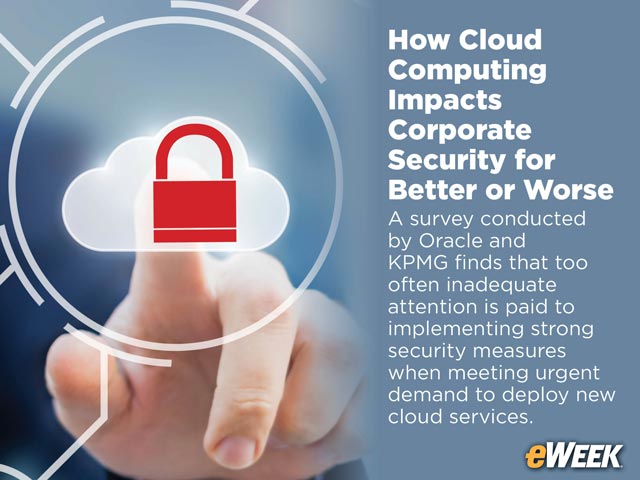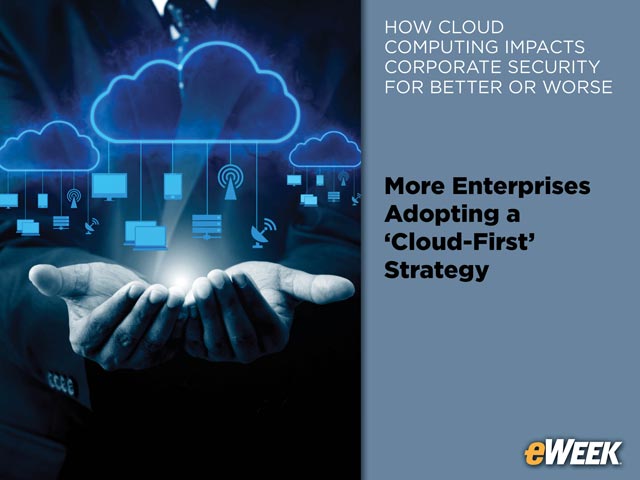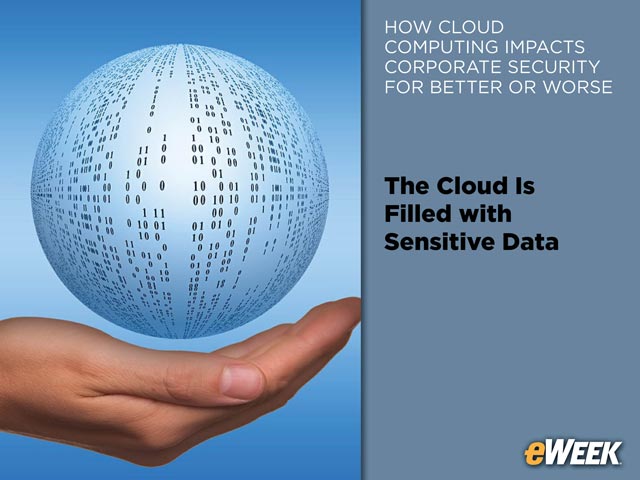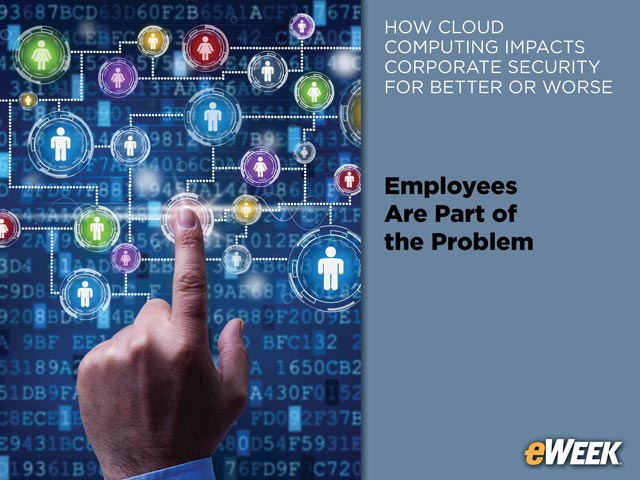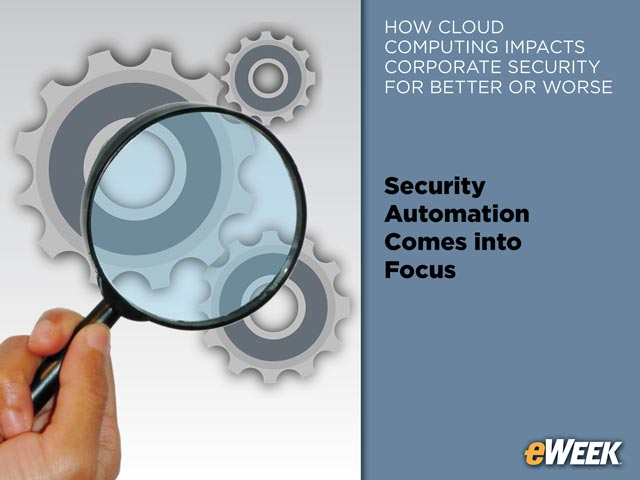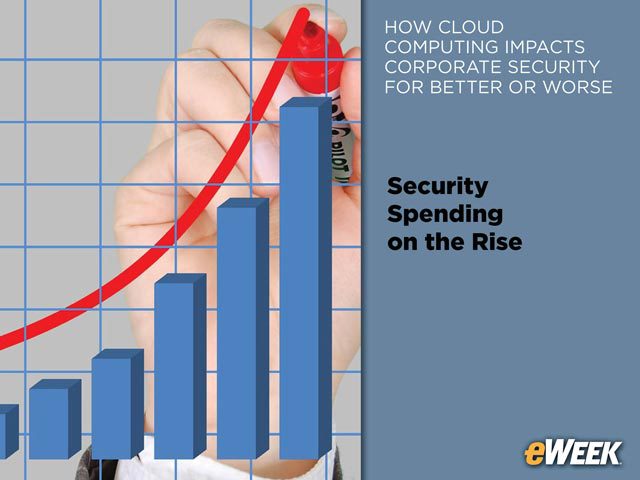eWEEK content and product recommendations are editorially independent. We may make money when you click on links to our partners. Learn More.
1How Cloud Computing Impacts Corporate Security for Better or Worse
A recent study from Oracle and KPMG suggests that enterprises are deploying cloud computing services without enough concern for security. The study, which is based on responses from 450 IT professionals, found that business managers are pushing for cloud services deployments that make sensitive data more accessible for analysis and decision making. But the IT department is left with the responsibility of implementing and managing cloud systems while insulating sensitive data from cyber-thieves. But in too many cases security measures are falling short of protecting corporate data, according to the study. This slide show will cover what the study says about corporate efforts to implement cloud services while effecting protecting data assets.
2More Enterprises Adopting a ‘Cloud-First’ Strategy
3The Cloud Is Filled with Sensitive Data
4Enterprise Executives Worry About Cloud Security
5Survey Respondents Say Cloud Security Not Their Top Challenge
6IT Managers Lack Insight Into Security Incidents
One of the biggest problems facing companies is how they’d respond if they were hacked. A staggering 86 percent of companies say they cannot “collect and analyze” a large portion of the information they need when security incidents occur. Such little insight means companies don’t know what happened and how it happened to assess the damage or to prevent it from happening again.
7Employees Are Part of the Problem
8The Importance of Machine Learning
9Some Companies Hiring Cloud Security Architects
10Security Automation Comes into Focus
11Security Spending on the Rise
Seeing the importance of the cloud and securing data, companies seem prepared to spend more to safeguard corporate data. According to KPMG and Oracle, 89 percent of respondents said that they will increase their cloud cyber-security spending within the next fiscal year.
